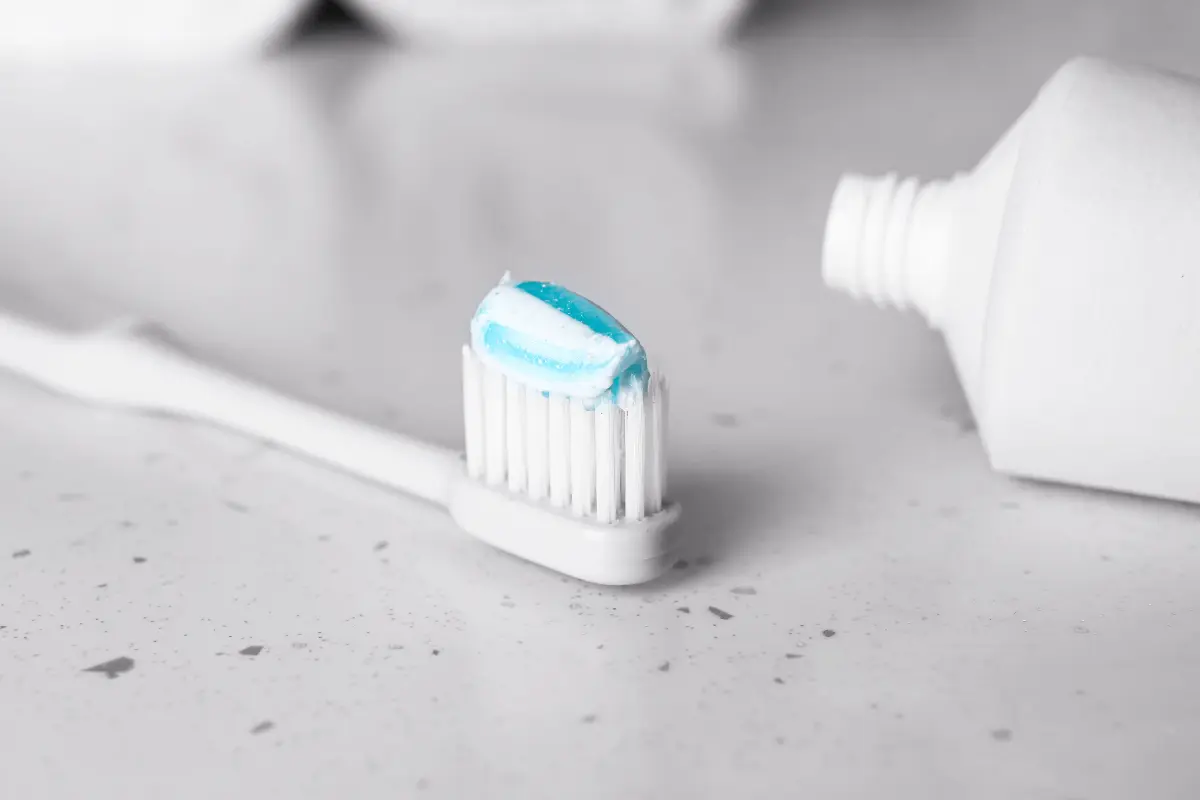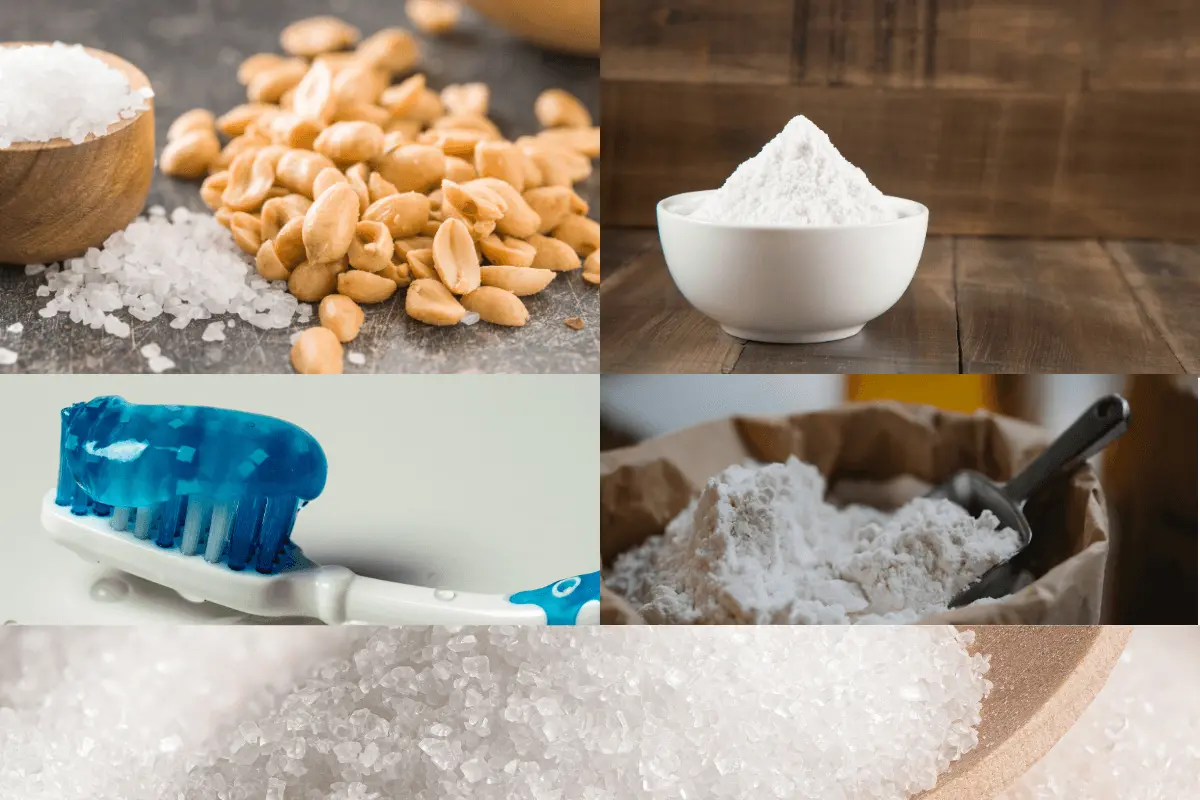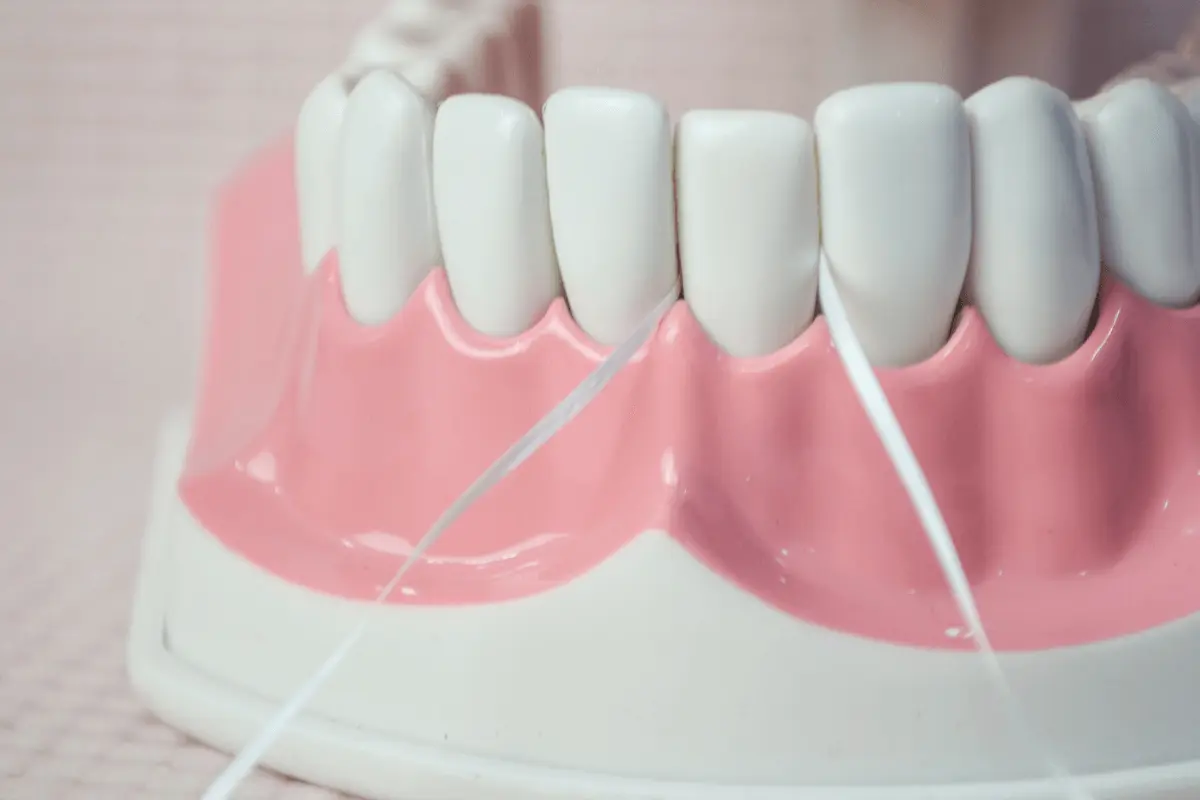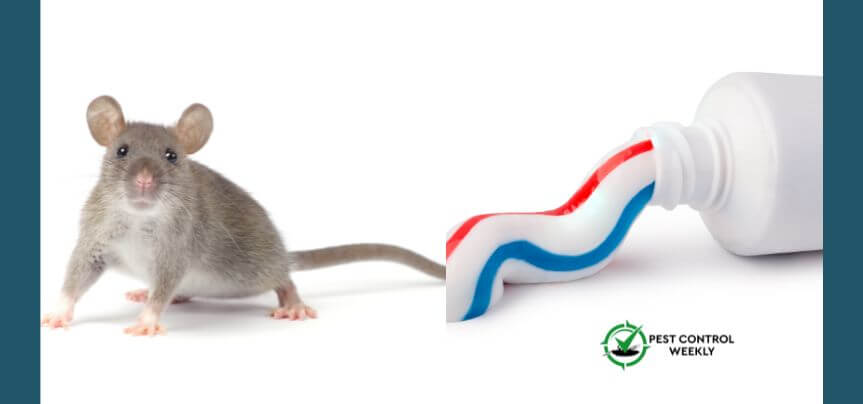It might seem there are hundreds of ways to get rid of rats. However, only a few of them work because rats are getting clever and avoid coming near the poison and the traps. Therefore, you need to find innovative ideas to deal with stubborn rats. Before looking for rat poison, study the ingredients. Fluoride is a common constituent of toothpaste. So, does toothpaste kill rats?
Yes. Toothpaste can kill rats if only it contains a high amount of sodium fluoride. A small quantity of toothpaste will not act as a poison, and the rat will survive. Mix a deadly dose of fluoride toothpaste with rats’ favorite food to lure them.
Homemade rat poisons are cheap and effective. Continue reading to find more details on; how to use toothpaste as rat poison.
Can Toothpaste Get Rid Of Rats?
Toothpaste can get rid of rats. The two common ingredients of toothpaste are sodium fluoride and mint. Sodium fluoride is poisonous to rats, and mint will repel rats.
Mint is a popular and common rat repellent. Many people suggest growing mint plants around the house to deter rats. Plus, using peppermint oil to repel rats is equally effective.
When you need a quick method to repel rats and do not have access to mint plants or oil: take a small quantity of mint toothpaste and plaster it on the rat’s entry points. The mint smell will be enough to repulse the rat.
If you have a rat problem in your neighborhood, smudge toothpaste on the corners of the doors and windows. The smell of mint disgusts rats as they have sensitive nostrils.
What Is The Deadly Dose Of Toothpaste For Rats?
A 21 gm of toothpaste is a deadly dose for one adult rat. Sodium fluoride is the main constituent of almost all toothpaste. It kills bacteria and other germs in your mouth. However, this sodium fluoride is deadly for small animals like rats. You will have to be precise with the amount of toothpaste to kill rats.

For a rough idea, you can consider that 0.4 gm of toothpaste is the same size as a pea. 0.4 gm of toothpaste will contain 0.972 mg of sodium fluoride. An adult rat will die after ingesting about 52 mg of sodium fluoride. Therefore, you will need to use almost 20 percent of your regular 100g toothpaste tube to kill one rat.
How Do You Make Homemade Rat Poison With Toothpaste?
The invasion of rats inside homes or workplaces is annoying and hard to deal with. There are many ways to deal with rats. The cheapest method is using things available around you, like toothpaste. So now you know the secret that toothpaste can kill the rat, so let’s look at the method you can use toothpaste to ensure it is effective.
- Initially, use the toothpaste directly without any bait to kill the rats.
- Squeeze a small pea size, and amount of toothpaste and place it near the rat’s entry points like attics, doors, windows, and inside the cabinets.
- Place multiple toothpaste balls in one place to ensure that the rat eats a sufficient amount of toothpaste that can kill it. When there is less or no food available, rats will definitely eat the toothpaste balls, thus eating themselves to death.
Ingredients Required For Making Homemade Rat Poison With Toothpaste

You will require the following items to make rat poison. All of these things must be already in your pantry. Thus, saving you a trip to the grocery store. You will need:
- Four tablespoons of crushed salted peanuts or peanut butter.
- One tablespoon of baking powder or baking soda.
- Two tablespoons of toothpaste.
- Two tablespoons of flour.
- One tablespoon of sugar.
Method To Make Rat Poison
Using bait is the best method to lure the rats toward the poison. In this homemade poison, we will use three baits’ peanuts, flour, and sugar, to ensure that rats eat the toothpaste balls.
- Combine all ingredients in one medium-sized mixing bowl, add a teaspoon of water if required, and make small balls.
- Place these rat poison balls in the areas with the rat infestation.
- Put multiple poison balls in one area to ensure that a rat eats enough fluoride.
Rats are keen eaters and will eat all the poisonous balls and eventually die within a few days. You might have to place this poison for a few days to remove the rats visiting your home. It is the safest rat poison to remove rats without hurting pets or children.
Does Fluoride Kill Rat?
Fluoride is a common ingredient of rat poison, and it has been utilized for centuries to kill rats and their colonies. It is also the safest way to kill rats without harming other animals and humans. Although, you will need to be careful if you have children under six.
The amount of fluoride in each rat poison varies as all companies make their unique product to kill rats. However, almost all rat poison contains more fluoride than is required to kill a rat.
A high quantity of fluoride in rat poison ensures that the pest dies. Rats will quickly eat the poison when added to grain or any other food and die instantly after eating it.
However, fluoride is no longer added to rat poison in many countries and is replaced by blood-thinning compounds. That is considered safer than fluoride.
What Is Sodium Fluoride Toxicity In Rats?
Sodium fluoride in toothpaste prevents tooth decay in humans but is poisonous to rats. In rats, fluoride causes bone cancer, affects brain activity, and decreases appetite.
The death caused by fluoride will be slow and depends upon the dosage. The high amount of fluoride ingestion means a quick death, while slow poisoning will take time.
The health of a rat slowly detritus and eventually leads to death. Therefore, if you want the poison made by sodium fluoride to work instantly, use it in high quantities.
An experiment by P Ekambram and Vanaja Paul displays sodium fluoride toxicity in adult female rats. The rats were given drinking water with fifty ppm of sodium fluoride alone or combined with calcium carbonate. For about two months, rats were given water with fluoride. The treatment caused less food and water intake in rats.
Therefore, decreasing their diet and weight. On the last day of the experiment series of laboratory tests were conducted to see the results. Sodium fluoride slowly destroys the rat’s motor activity, can cause dental lesions, decreases the concentration of protein and serum calcium levels, and causes increased serum fluoride levels.
What Other Chemicals Kill Rats?
The rat poison contains blood-thinning chemicals that kill the rat instantly. The chemicals found in almost all commercially available rat poisons: are bromethalin, calciferol, zinc, metal phosphate, and anticoagulants.
Anticoagulant decreases the growth of vitamin K in the stomach; Vitamin K is an essential component in blood clotting. When the vitamin K level is suppressed, it leads to internal bleeding.
Bromethalin causes brain and liver damage. An animal will die within a few hours after ingestion of bromethalin. The maximum it can survive is a few days.
In rats, calciferol increases vitamin D. High level of vitamin D causes increased absorption of calcium from the gut. It leads to hypercalcemia, a condition in which serum calcium level increases drastically.
High calcium level causes calcification in blood vessels, lungs, kidneys, and heart. It will kill the rat within a week. Zinc will cause the formation of toxic gas inside the rat’s stomach, eventually leading it to die within a few days.
Do Rats Like Dental Floss?
Rats enjoy collecting nesting materials. They use multiple daily items like cardboard boxes, books, clothing pieces, and newspapers. Therefore, a rat can pick up pieces of dental floss from your bathroom or garbage cans to use in their nest.

In fact, the string is a favorite nesting item of rats, and they begin collecting it at a very young age.
Dental floss can be used as bait to catch rats on the snap trap. Place a few strings of dental floss on the snap trap, and you will kill the rat within a few hours or a day. It is a quick and easy method to remove rats roaming around your house.
Can You Outsmart a Rat?
Adult rats are clever and avoid going near traps and poison. An increase in the rat population indicates that rats are getting immune to many poisons used to get rid of them for years. However, you can always outsmart a rat by adding bait along with the poison.
Rats love to eat and can eat anything and everything. They will eat fresh food from your pantry to the leftovers in dustbins. Therefore, adding bait to the poison will attract rats like grains, flour, and peanuts. Additionally, you will have to place poison for a few days in the same place for better results.
Conclusion
You can get rid of rats by using things available at home like toothpaste. The active ingredient of toothpaste is sodium fluoride which is not harmful to humans or animals. However, an excess of fluoride will kill the rat. You can make homemade rat poison with toothpaste and place it near the rat’s access point. Adding bait with the poison is necessary to attract the rat.
Fluoride causes a decrease in appetite, cancer, and neurological damage in the rat. However, fluoride is no longer added to commercially available rat poison and is replaced with blood thinners.

